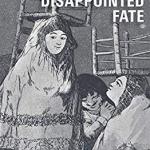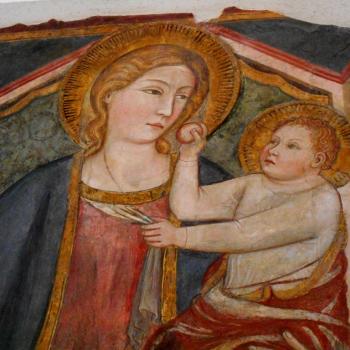In the past year, I have become involved in a new ministry at my parish devoted to the hungry and the homeless. It’s the sort of quiet radical ministry that starts small, harnesses its passion, and then, within a few months, is making a huge difference in the community. To feed and clothe others: what could be more indicative of the outward work of the Christian?
Inspired by a guest speaker who came to our church, I went to a home for young mothers (ages 18-25) who have found themselves with no resources, very little support, and a child to take care of. I cooked dinner for them in support of a mission I have found truly radical: women and their children being supported with no payment expected and a new future borne out of Catholic ministry. This is not the logic of the marketplace. This is not even really the logic of “personal responsibility.” Personal responsibility in the Catholic sense is responsibility for one another. We are all sinners, all of us have made mistakes, and all of us need not only the forgiveness of God but the prayerful and service-oriented consideration of our community.
Growing up Catholic in the age of Evangelium Vitae, I knew that a zeal for the protection of life is at the core of Catholic doctrine. What I have also observed is how much easier it is for so many Catholics to focus on the unborn and ignore or undervalue the rest of a person’s life, when much more radical acts of service are required.
I have heard Catholics say that there is no comparison between Abortion and the ravages of income inequality and poverty and while in Catholic teaching there are different levels of concern for the destruction of life and the stifling of life, this is not an excuse to become a one-issue Catholic focused on abortion and then ignore completely Catholic social teaching on the flourishing of life. I simply don’t believe that a Catholic who sees a moral emergency in abortion but accepts fully the rigid class distinctions of modern capitalism in which 43% of our nation’s children live in low income families is operating in good faith. It is easy to lecture women on their choices. It is easy, in fact, to outlaw and limit abortion practice in many states. It is much much harder however to create a world in which children are so well cared for that no one who becomes pregnant need fear that they will be inescapably saddled with a life of poverty. It is much harder to look at a single mother struggling in poverty and see yourself.
Too often Catholics work hard to save the unborn only to welcome them into a world that meets them with suspicion and hostility or, at the very least, lectures on personal responsibility and market value. If we believe life transcends all other value systems in the eyes of God, then we should work hard in all we do to hold up life above the idols of money, the marketplace, and the pride and self-aggrandizement so many politicians seem to feel when they regard the poor. Paul Ryan lectures frequently against “a culture of dependence.” In community life and in Catholic life we are inevitably part of “a culture of dependence.” Dependent on Christ, on the Eucharist, and, as we too often forget, on our communities. The early church was a monument not only to a new covenant with Christ but to a new community (Paul’s Epistles and the Acts of the Apostles bring us to this phenomenon).
Though the “pro-life” label is often seen as conservative, it is, in fact, when applied in the fullness of the term, radical and in discord with the marketplace, the politics of our age, and the hierarchies with which so much of our society is organized. As a country, we have children right now in jails. We have them traumatized and separated from their parents. We have children who cannot eat. We have children who are abused and neglected. As importantly, we have parents without the resources to parent without panic and anxiety. We have parents who are trying to do the best for their children but can’t get ahead. We have a higher education system that funnels the poorest Americans toward the most exploitative and least-helpful options. We have pulled investment away from our community colleges and state universities which used to be a gateway to the middle class. We have weighed generations down with debt to give them the basic qualifications needed for a better life. We give unhelpful options. We say “what about the trades?” forgetting that even there wages are uneven with owners making far more money than their workers and with the undermining of unions in this country that will only become worse. We have seen wages fall.
This is the problem of other people: to admit to ourselves that, yes, there is a problem. There is not an easy fix. If you truly cherish life, you have to change the world, not lecture it.











